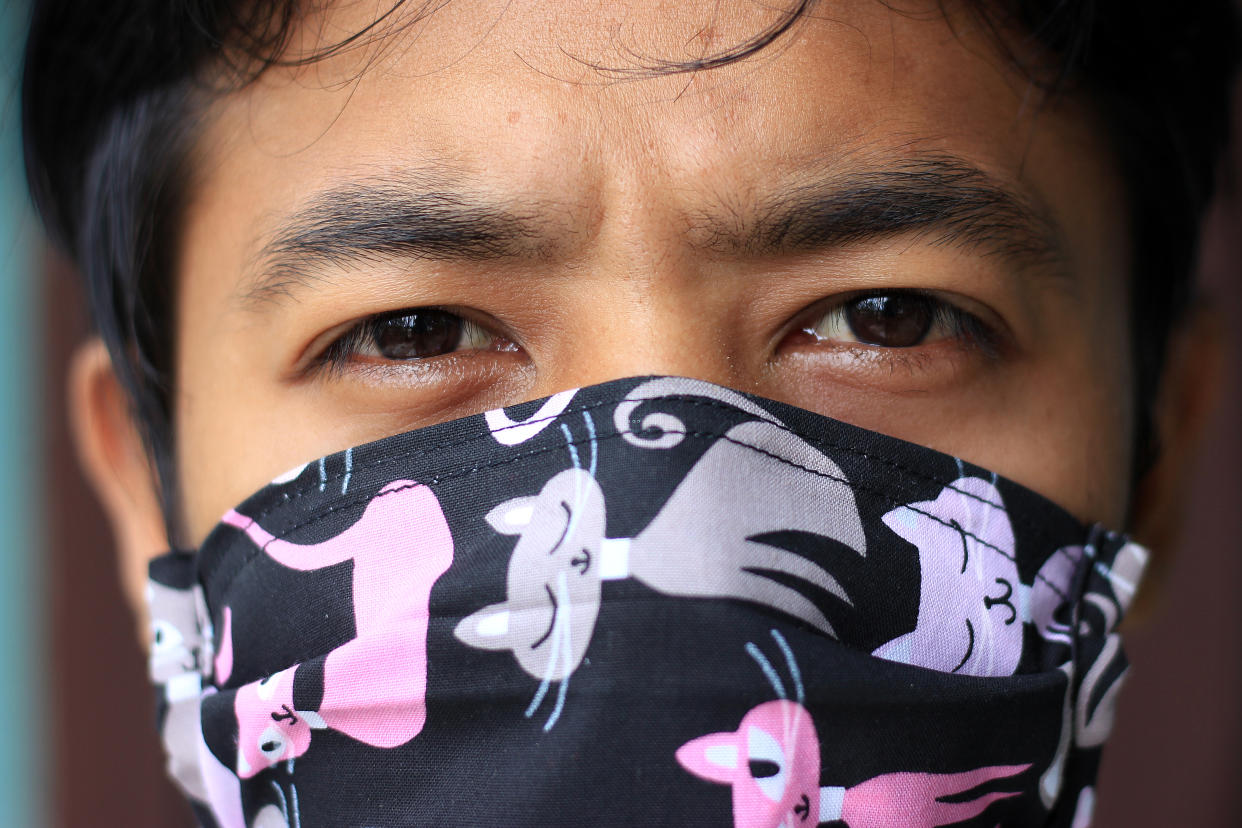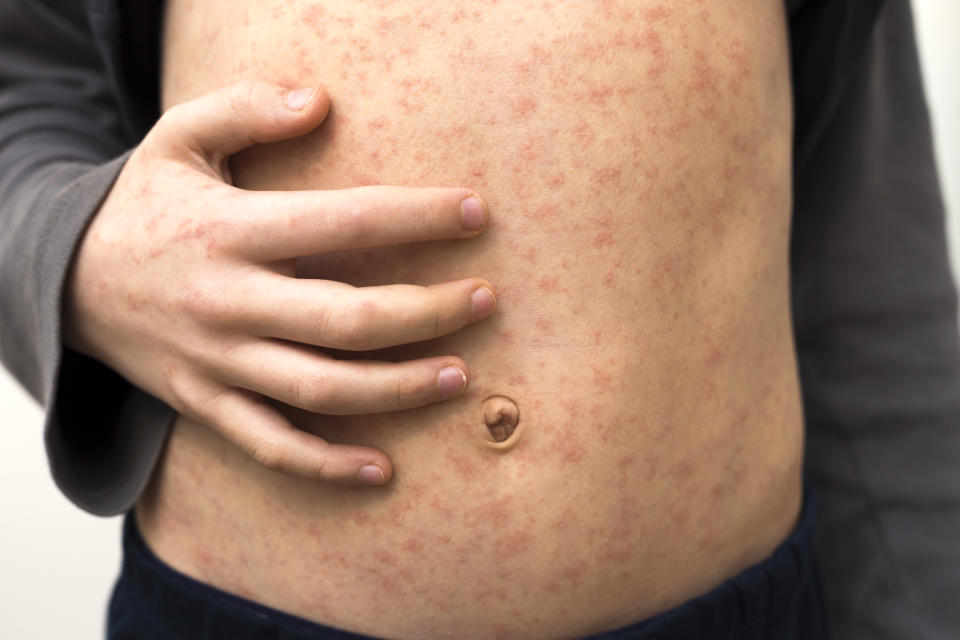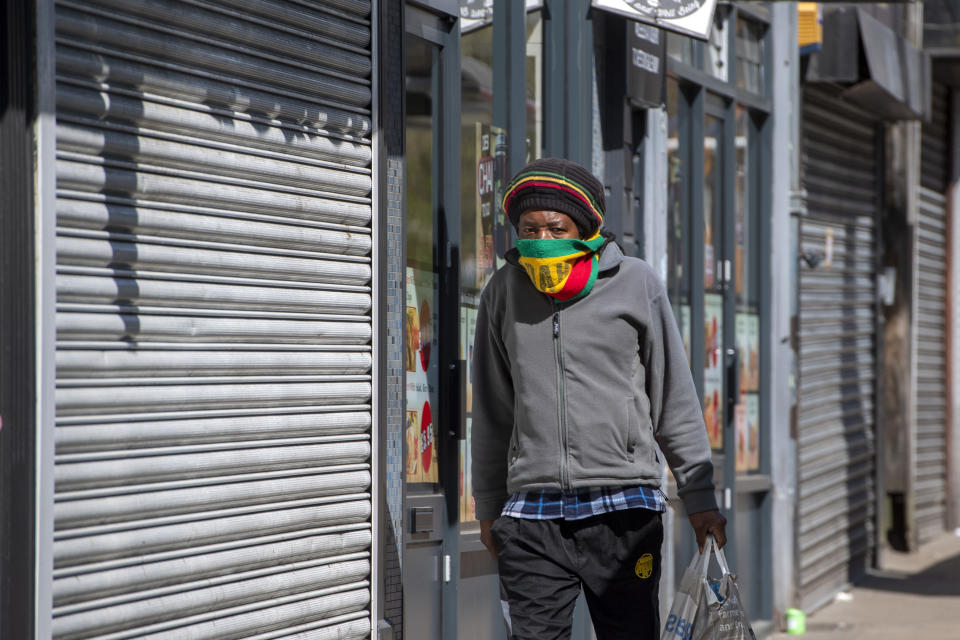Coronavirus may trigger a measles resurgence as vaccinations are 'paused'

Experts have voiced concerns the coronavirus pandemic may trigger a resurgence in measles.
The World Health Organization (WHO) has given the green light for countries without an active measles outbreak to pause vaccinations while they combat the global health emergency.
Early research suggests the coronavirus is mild in four out of five cases, however, it can trigger a respiratory disease called COVID-19.
Twenty-four low and middle-income countries have halted immunisation programmes against measles, despite some dealing with a sizeable number of cases.
The Measles & Rubella Initiative has warned 117 million children across 37 countries may not get the vaccine as scheduled.
Measles is a highly-infectious virus that commonly causes cold-like symptoms, a fever and blotchy rash.
Most cases pass within 10 days, however, it can trigger life-threatening pneumonia and inflammation of the brain.
The UK is continuing to vaccinate against measles as part of its childhood immunisation schedule, but saw a re-emergence of cases prior to the coronavirus outbreak.

Coronavirus causing countries to pause measles vaccinations
The following countries have paused their measles immunisation programme amid the coronavirus, with more nations expected to be added to the list:
Bangladesh
Brazil
Bolivia
Cambodia
Chad
Chile
Colombia
Djibouti
The Dominican Republic
The Democratic Republic of Congo
Ethiopia
Honduras
Kazakhstan
Kyrgyzstan
Lebanon
Maldives
Mexico
Nepal
Nigeria
Paraguay
Somalia
South Sudan
Ukraine
Uzbekistan
Latest coronavirus news, updates and advice
Live: Follow all the latest updates from the UK and around the world
Fact-checker: The number of COVID-19 cases in your local area
Explained: Symptoms, latest advice and how it compares to the flu
The Measles & Rubella Initiative, a partner of the WHO, “strongly agrees with [the organisation’s] recommendations”.
It urges world leaders to “track unvaccinated children so the most vulnerable populations can be provided with measles vaccines as soon as it becomes possible to do so”.
Low and middle-income countries reportedly often vaccinate youngsters in public settings, like marketplaces and churches.
Dr Robin Nandy, the chief of immunisation for Unicef, told The New York Times: “In our quest to vaccinate kids, we shouldn’t contribute to the spread of COVID-19.
“But we don’t want a country that is recovering from a [coronavirus] outbreak of it to then be dealing with a measles outbreak”.
Unicef spokeswoman Joanna Rea told the BBC: “Disruptions to routine vaccine services will increase the risk of children contracting deadly diseases, compound the current pressures on the national health services and risks a second pandemic of infectious diseases.”
Dr Nancy has urged countries to prepare to immunise as soon as restrictions are lifted. This includes compiling vaccination registers and making plans to ship syringes or even charter flights.
Dr Beate Kampmann, from the London School of Hygiene & Tropical Medicine, argued less developed countries can have “virtually no registers for vaccinations”.
UK no longer ‘measles free’
In 2017, the WHO declared the UK had “eliminated measles” based on 2014-to-16 data.
This was reversed when 991 confirmed cases came to light in England and Wales in 2018.
Children in the UK are routinely immunised against measles as part of the measles, mumps and rubella (MMR) jab.
The first MMR dose is given when a child is around 12-to-13 months, followed by a booster at three years and four months.
Together, the two doses are said to provide 95% protection against mumps.
NHS Digital data shows 94.5% of five year olds in England had been immunised with the first MMR dose in 2018/19, down from 94.9% in 2017/18 – both below the 95% immunisation target.
Even if not everyone has been vaccinated, having an immunisation rate of 95% can ward off an outbreak due to “herd immunity”.
This occurs when a sufficient number of people have been vaccinated to prevent an infection “taking hold”.
Herd immunity protects those who may be unable to have a jab, like cancer or HIV patients.
When it comes to the second MMR dose, 86.4% of five-year-olds in England were immunised in 2018/19, down from 87.2% the year before.
Reluctance to take up the vaccine may have initially dated back to a scare story that hit the headlines in the 1990s.
Former gastroenterologist Andrew Wakefield mistakenly linked the MMR jab to autism in the medical journal The Lancet.
The paper has since been retracted and Wakefield struck off.
The “data” has been called “bogus”, as well as “fatally flawed both scientifically and ethically”.
Dr Mary Ramsay, head of immunisation at Public Health England, previously noted uptake of the second MMR dose is markedly lower than the first.
“The decline is not in commencing vaccination but in completing courses,” she said.

What is measles?
Measles can affect anyone who has not been vaccinated, but is most common in young children.
Around 10 days after infection, patients develop a cold-like runny nose, sneezing and a cough.
Their eyes may become red, sore and sensitive to light.
Fever and grey-white spots on the inside of the cheeks are also key symptoms.
A few days later, a brown-red splotchy rash appears. This usually starts on the head and neck, before spreading over the body.
Most cases pass in seven-to-10 days, leaving patients immune to the virus.
Nevertheless, measles can be serious, and people should contact their GP if they suspect they or a loved one is infected.
Measles mainly spreads via infected droplets expelled in a cough or sneeze. The virus can also survive for several hours on surfaces.
Patients are said to be infectious from when they catch the virus to around four days after the rash appears.
Measles can be prevented via vaccinations.

What is the coronavirus?
Since the coronavirus outbreak was identified, more than 1.9 million cases have been confirmed worldwide, according to Johns Hopkins University.
Of these cases, over 465,000 are known to have “recovered”.
Globally, the death toll has exceeded 121,700.
The coronavirus mainly spreads face-to-face via infected droplets expelled in a cough or sneeze.
There is also evidence it may be transmitted in faeces and can survive on surfaces.
Most cases are mild, however, pneumonia can come about if the coronavirus spreads to the air sacs in the lungs.
This causes them to become inflamed and filled with fluid or pus.
The lungs then struggle to draw in air, resulting in reduced oxygen in the bloodstream and a build-up of carbon dioxide.
The coronavirus has no “set” treatment, with most patients naturally fighting off the infection.
Those requiring hospitalisation are given “supportive care”, like ventilation, while their immune system gets to work.
Officials urge people ward off the coronavirus by washing their hands regularly and maintaining social distancing.




